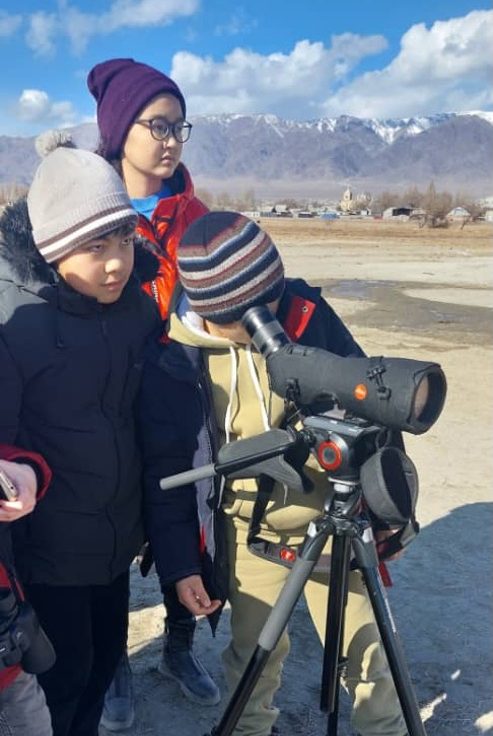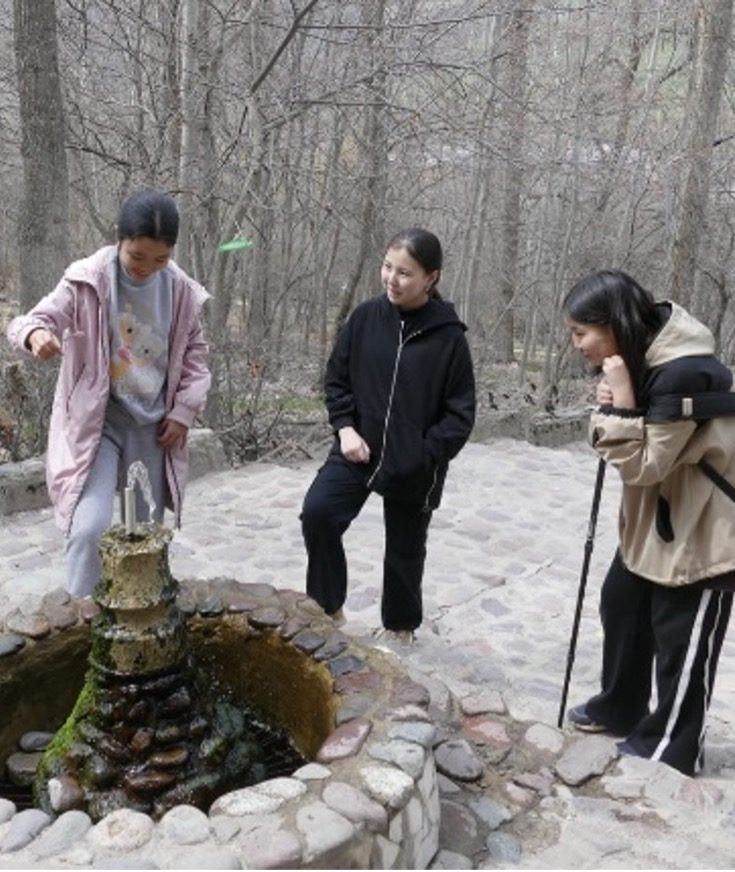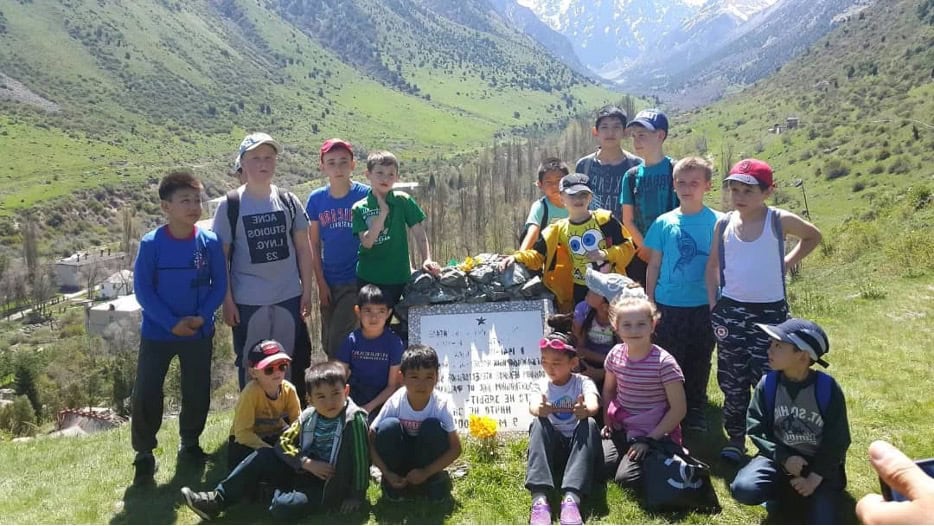Above: Student excursion to a popular tourist destination investigating how to clean up litter left by visitors
The third annual Schools2030 Global Forum comes to Bishkek this year, with delegates flocking in from around the world to discuss how Teacher Leadership can support a generation of climate resilient students. With that backdrop, many of the Schools2030 teacher-led design teams in the Kyrgyz Republic have been trying out a variety of teaching practices that can not only address gaps in student performance but can also help to instil a love and respect for the environment in their students.
One such practice was created by teachers at School #62 in the Kyrgyz capital. The team there has designed an innovation after assessments identified a significant problem in the reading skills and leadership among 10 to 15-year-olds. Coined as ‘Green Reading: Learning and Caring,’ the approach incorporates climate change education and aims to nurture ‘green’ skills – i.e. skills that young people might need to tackle the climate emergency, such as leadership – whilst improving overall reading comprehension.
“They see with their own eyes all the beauty and richness…and understand that they should always love, appreciate and respect our rich, beautiful nature!”
Isaeva Meerim Dogdurbekovna, Schools2030 Design Team Leader and Teacher
Green Reading in Action
Putting the initiative into practice, a range of engaging activities are being conducted including reading sessions where students read and discuss environment, conservation, and climate change-related literature. Critical reading strategies will also be integrated into the lesson plans and students will then have the opportunity to use their knowledge to create and engage in practical projects, such as:
- leading a recycling initiative within the school,
- tree planting organised together with the wider community,
- the creation and implementation of environment and conservation awareness campaigns
- research activities and excursions in natural settings including trips to known Kyrgyz beauty spots
By empowering students to be active in development projects within their schools and communities they gain not only a deeper knowledge of the environment and the benefits of conservation, but also stronger leadership and cooperation skills.


Leadership for a Sustainable Future
The Green Reading initiative has been running in School #62 for 8 months now and already it is having an impact on student engagement. The initiative is currently running for 177 students across Grades 4 and 9, and the impact on learning outcomes will be tested on a continual basis to see whether it is having the desired effect. Anecdotally, students and teachers seem to be very much enjoying and engaged with the activities, as design team leader, Isaeva Meerim Dogdurbekovna, commented:
“During our trips, we teachers notice a good mood, and a thoughtful, interested look in the children, and this makes us feel good. The next day after such trips, some parents call and thank us for the great time we had. Mothers say that their son or daughter talks endlessly about this trip…After the trip, children begin to understand and appreciate the importance of nature and the environment. They see with their own eyes all the beauty and richness of our beautiful nature. Mountains, lake, trees, birds, grass, insects, animals and understand that they should always love, appreciate and respect our rich, beautiful nature!”
Combining critical reading strategies and student-led practical exercises, the ‘Green Reading: Learning and Caring’ approach allows students to improve both reading comprehension and leadership skills, even whilst they learn more about the natural world: how precious, life-giving and important it is for individual and global wellbeing. Lessons like this mean that students do not just learn from a page, they are given the tools, environmental awareness, and inspiration to take real action in their schools and communities. This encouraging new initiative not only takes a fundamental step towards achieving better reading comprehension in schools, but also in creating a new generation of leaders who will protect our sustainable future.
The Schools2030 Global Forum takes place in Bishkek, Kyrgyz Republic from 11-13th June. To watch the live-streamed events and engage in critical dialogue about how teachers can support a green future, click here.
